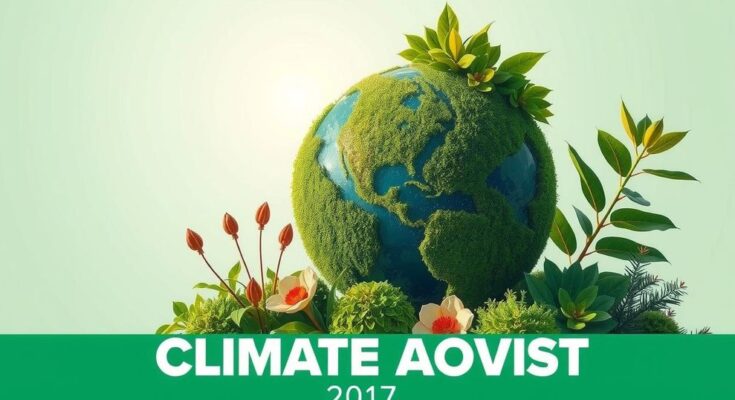The U.S. withdrawal from the Paris Agreement has raised doubts about global climate policy effectiveness. Professor Sir David King emphasizes the Global South’s potential leadership role in climate action. He advocates for immediate strategies focusing on emissions reduction and renewable energy, warning of severe consequences if inaction persists. South Africa, in particular, can transition from coal to renewables, provided there is strong leadership and equitable policies to support affected communities.
The decision by the United States to withdraw from the Paris Agreement has raised concerns regarding the effectiveness of global efforts to address climate change. Imraan Valodia, a prominent academic, engages in discussions with Professor Sir David King, who founded the Climate Crisis Advisory Group, regarding these critical issues. Sir David, a South African born and a renowned scientist, advocates for global collaboration on climate initiatives despite the current geopolitical challenges.
Sir David underscores that climate change represents a serious and undeniable threat to humanity. He emphasizes the need for immediate action, noting we have surpassed 1.5°C of warming, which has already led to catastrophic consequences such as extreme weather, floods, and rising sea levels. He promotes an ambitious strategy comprising emissions reduction, greenhouse gas removal, ecosystem restoration, and resilience building, warning against inaction, which could result in dire future scenarios.
Despite the setback of the U.S. withdrawal, Sir David believes the Global South can take the initiative in climate action. Countries like South Africa, Brazil, and China have the potential to establish new, equitable climate alliances, prioritizing sustainability and social justice. He argues that while the Global North should assume responsibility for emissions reductions and providing support, the primary momentum for change must originate from developing nations.
Sir David emphasizes that the Climate Crisis Advisory Group seeks to amplify diverse global voices in shaping climate policy. He notes the critical importance of investing in vulnerable regions to build resilience and trust among nations as a cohesive response to climate challenges. He highlights that the choices made today are pivotal for a future characterized by stability and equity.
South Africa is positioned to emerge as a leader in renewable energy, although it requires decisive leadership and reform. With its significant solar and wind resources, South Africa could transition from its reliance on coal, which has been vital to the economy but is now outdated and costly. By prioritizing renewable energy investments, South Africa could stimulate job creation and energy independence, following successful examples set by other nations like Kenya.
To manage its transition from coal dependency, South Africa must ensure that the phase-out is equitable and socially responsible. Investments in reskilling programs for coal workers are essential to mitigate the socioeconomic impacts of this shift. Sir David draws on the UK’s experience in phasing out coal, advocating for similar strategies that prioritize economic stability and workforce development in South Africa.
In conclusion, the urgency of addressing climate change calls for bold and immediate action, especially from the Global South. South Africa has the opportunity to lead by investing in renewable energy and creating inclusive transition strategies for coal-dependent communities. By doing so, it can work towards a future that emphasizes sustainability, economic equity, and resilience against climate impacts.
The conversation underscores the pressing need for the Global South to take the lead in addressing climate change, especially in light of the U.S. withdrawal from the Paris Agreement. Sir David King highlights the potential of countries like South Africa to emerge as leaders in the renewable energy sector. A just transition from coal to renewable resources, supported by inclusive policies, is vital for economic and social stability. Immediate action is imperative to achieve a resilient and equitable future.
Original Source: theconversation.com




